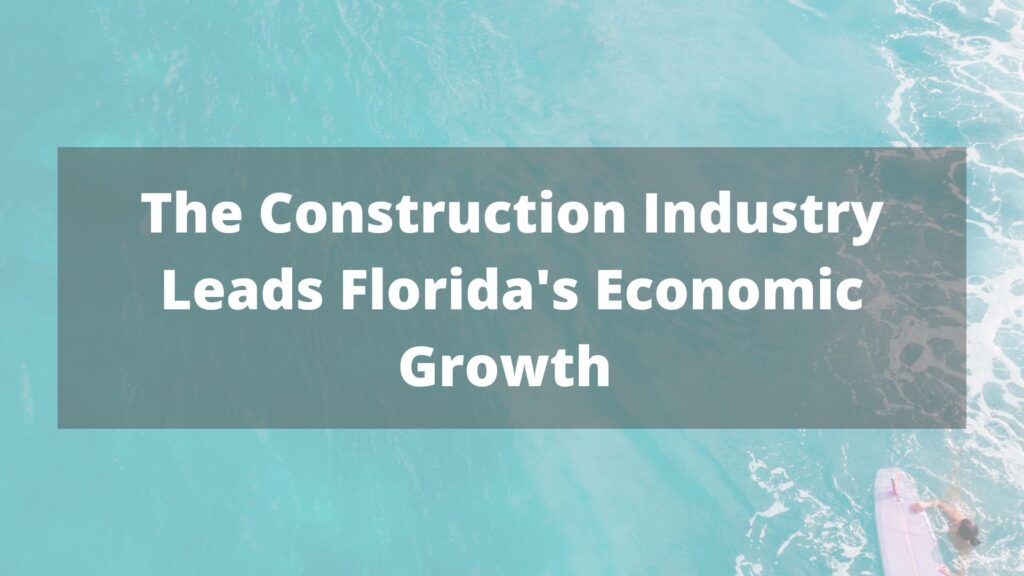
The Law Offices of John Caravella, P.C. does not own this content. This press release was created by Governor Ron DeSantis’ Press Office and was published on March 24th, 2023. To view the full release, please click here.
Governor DeSantis Announces Southwest Florida Unemployment Rate Continues to Drop Over the Year
As Fort Myers Region Leads State in the Construction Job Growth Rate Over the Year
Naples, Fla. — Today, Governor Ron DeSantis announced that the Southwest Florida area’s unemployment rates have dropped over the year despite the impacts of Hurricane Ian. As the Fort Myers region had the fastest job growth rate in construction at 8.4 percent over the year. The Fort Myers area, one of the most impacted areas by Hurricane Ian, saw a decrease in its unemployment rate, down 0.4 percentage point over the year to 2.8 percent in February 2023. The Naples area, also heavily impacted by Hurricane Ian, saw a 0.3 percentage point decrease in its unemployment rate over the year to 2.5 percent in February 2023.
The Fort Myers area private sector employment grew by 10,200 jobs over the year, an increase of 4.0 percent. The Naples area private sector employment increased by 1,600 jobs over the year, an increase of 1.1 percent.
Southwest Florida’s area labor force increased by 14,180 over the year in February 2023. The Fort Myers area labor force grew by 12,707 over the year in February 2023, a 3.4 percent increase, and the Naples area labor force increased by 1,473 over the year, a 0.8 percent increase.
The Fort Myers area industries gaining the most jobs over the year were construction increasing by 3,000 jobs and education and health services increasing by 2,900 jobs. The Naples area industries gaining the most jobs over the year were education and health services, increasing by 1,400 jobs and construction increasing by 1,000 jobs.
Florida’s unemployment rate remained at a low 2.6 percent, while the national rate increased. Furthermore, Florida’s unemployment rate decreased by 0.7 percentage point over the year and has been lower than the nation for 28 consecutive months since November 2020.
In February 2023, Florida’s private sector employment grew by 5.0 percent (406,600 jobs) over the year. Between February 2022 and February 2023, Florida’s labor force grew by 247,000 (2.3 percent), which is faster than the national labor force growth rate of 1.5 percent during the same time period.
Florida’s private sector employment increased by 0.4 percent over the month (+34,800 jobs) in February 2023, faster than the national rate by 0.2 percentage point over the month and 2.0 percentage points over the year. In February 2023, Florida employers have added jobs for 33 months since May 2020, with the exception of October 2022. Florida’s over-the-year private sector job growth rate has exceeded the nations’ job growth rate for 23 consecutive months since April 2021.
In February 2023, trade, transportation and utilities gained the most jobs among all major industries, adding 12,800 jobs (+0.7 percent) over the month, followed by education and health services, adding 11,400 jobs (+0.8 percent), and leisure and hospitality, adding 10,700 jobs (+0.8 percent).
Data from the month of February continues to indicate there are many job opportunities available for Floridians throughout the state, with more than 409,000 jobs posted online. Floridians in search of work and new job opportunities are encouraged to turn to the CareerSource Florida network for help. Floridians can find guidance on how to register with Employ Florida and search listings of available local job openings. Career seekers also can improve their employability by perfecting resume writing and interviewing skills, establishing career goals, and pursuing customized career training. These services are provided at no cost to job seekers.
Various resources available to help Floridians and businesses include:
Local Government Emergency Bridge Loan Program-This one-time $50 million appropriation will fund governmental operations within eligible Florida counties and municipalities and bridge the gap between the time of the hurricane and the time additional funding sources or revenues are secured. “Governmental Operations” includes costs associated with continuing, expanding, or modifying local governmental operations to meet disaster-related needs and includes costs such as, but not limited to, staff salaries and payroll. Eligible applicants are encouraged to use this checklist to submit the required documentation and information via email to [email protected]. For more information about the Local Government Emergency Bridge Loan Program, please visit www.FloridaJobs.org/LocalGovernmentBridge
CareerSource & DEO Disaster Jobs Portal – The CareerSource Florida network has mobilized and deployed units and staff from across the state to storm-affected areas to assist Floridians with employment and business services. These mobile units, directed by local workforce development board and DEO teams, have computers, internet service, and skilled staff to help people apply for disaster recovery programs and new employment opportunities. DEO is also working with the Small Business Development Centers (SBDC) Network, who has deployed mobile units also and is working with the U.S. Small Business Administration. To look for employment opportunities to help rebuild Florida’s communities impacted by Hurricane Ian or to post disaster-related jobs where a labor force is needed, visit Florida’s Disaster Recovery Jobs Portal at DisasterRecovery.EmployFlorida.com.
Dislocated Worker Grant – Through the Dislocated Worker Grant Program, DEO partners with local workforce development boards in the affected area to pay salaries for temporary disaster relief employment, which includes restoration and repair work, debris removal, and humanitarian assistance.
Community Action Network Resources – Through a close partnership with DEO, the Community Action Agency network helps administer the state’s Community Services Block Grant and Low-Income Home Energy Assistance programs.
- Through the Community Services Block Grant Program, Community Action Agencies may provide emergency health, food, housing, day care, transportation assistance; housing counseling; financial management assistance; nutrition programs including federal surplus food distribution, food banks, job counseling, placement and training services and homeless prevention programs.
- DEO has released emergency set-aside funding through the Low-Income Home Energy Assistance Program to help families re-establish electric service, provide utility deposits at new places of residence for those permanently displaced, and repair or replace air-conditioning equipment for households with health-related conditions exacerbated by flooding, wind, and other storm damage.
Visit www.FloridaJobs.org/FindYourLocalCAA to apply for assistance through the Community Action Agency that serves the county where you live.
To view the statewide February 2023 employment data, visit www.floridajobs.org/labor-market-information/labor-market-information-press-releases/monthly-press-releases. Visit Florida Insight for more information on labor market and economic data.
###
 John Caravella Esq., is a construction attorney and formerly practicing project architect at The Law Office of John Caravella, P.C., representing architects, engineers, contractors, subcontractors, and owners in all phases of contract preparation, litigation, and arbitration across New York and Florida. He also serves as an arbitrator to the American Arbitration Association Construction Industry Panel. Mr. Caravella can be reached by email: [email protected] or (631) 608-1346.
John Caravella Esq., is a construction attorney and formerly practicing project architect at The Law Office of John Caravella, P.C., representing architects, engineers, contractors, subcontractors, and owners in all phases of contract preparation, litigation, and arbitration across New York and Florida. He also serves as an arbitrator to the American Arbitration Association Construction Industry Panel. Mr. Caravella can be reached by email: [email protected] or (631) 608-1346.
The information provided on this website does not, and is not intended to, constitute legal advice; instead, all information, content, and materials available on this site are for general informational purposes only. Readers of this website should contact their attorney to obtain advice with respect to any particular legal matter. No reader, user, or browser of this site should act or refrain from acting on the basis of information on this site without first seeking legal advice from counsel in the relevant jurisdiction. Only your individual attorney can provide assurances that the information contained herein – and your interpretation of it – is applicable or appropriate to your particular situation. Use of, and access to, this website or any of the links or resources contained within the site do not create an attorney-client relationship between the reader, user, or browser and website authors, contributors, contributing law firms, or committee members and their respective employers.
